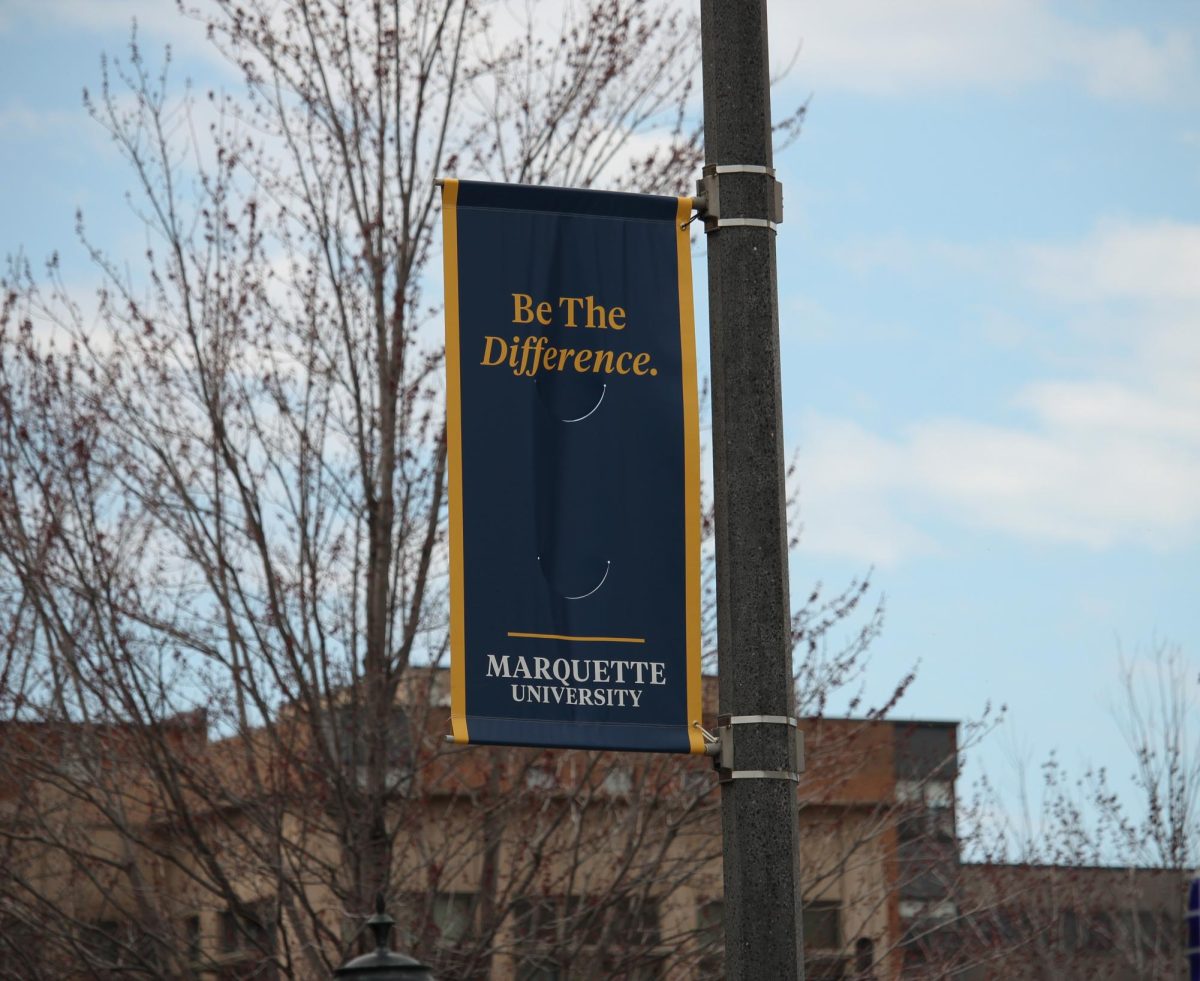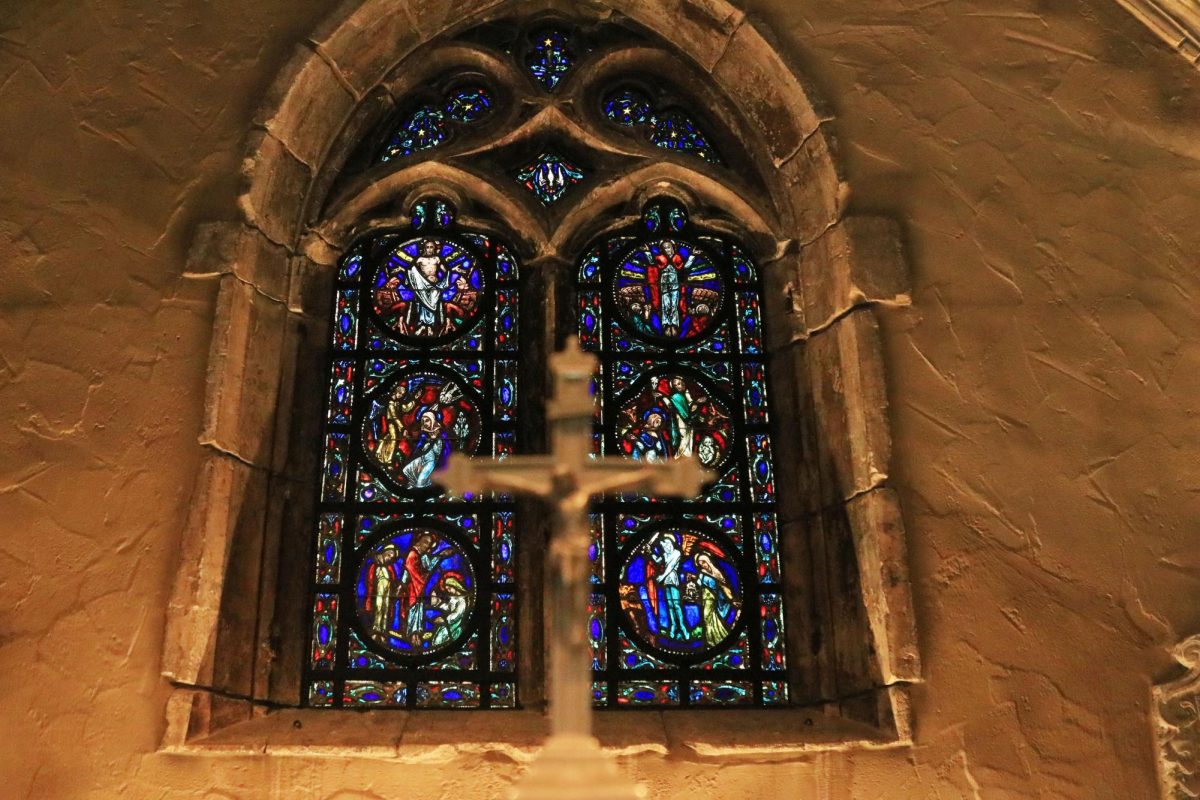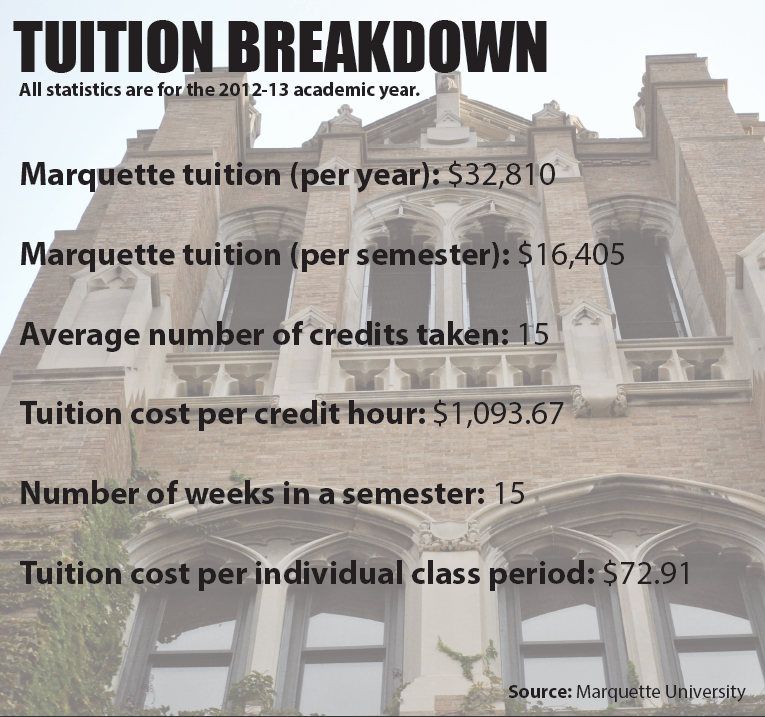
How hard is it to truly unplug? No, not literally — spiritually. At Marquette we hear the university throw around terms like reflection, examen, prayer and meditation, but how many students actually take time for themselves?
Last week a Marquette political science professor told her lecture class of 119 students that she would drop their lowest test score at the end of the semester – but only if she could go the entire semester without catching a single student on her or his cell phone.
This offer reflects not just how valuable this professor finds unplugging and paying attention in class, but how often she has been frustrated by seeing students just not care about their classes or about showing respect for their professors and peers.
And as generous as that offer is, we imagine that someone will inevitably ruin it for everybody. But why? Why do we feel the need to text, Facebook and Tweet constantly? Why do our hands seem to crave our phones every few minutes? Our guess is that it’s because we are afraid of being alone with our thoughts.
We constantly use technology to hide. Who hasn’t pretended to text in order to avoid eye contact or awkward encounters? It’s easy to feign disinterest with so many tools at our disposal. What did our parents do when they felt awkward? They couldn’t hide behind a phone screen. They had to endure the discomfort, and they probably felt awkward less often anyway, because they experienced real social interaction on a more regular basis.
Sometimes we are so absorbed with our profiles, friend lists, followers and text messages that we can miss what is right before our eyes.
When was the last time you actually turned your phone off? Off for a day? For a week? How often do you log into Facebook or Twitter? We don’t mean to suggest that social media is inherently bad, but we advocate for balance. Everyone needs some time for inward reflection, to collect thoughts and evaluate emotions and actions. This sacred time does not necessarily have to be religious, but it is often spiritual.
We know that not everyone at Marquette subscribes to Catholicism, Christianity or even a belief in God, but the ideals of a Jesuit education can apply to everyone. They should still affect our lives as students and allow us to develop a deeper knowledge of ourselves and of others. The Jesuits teach the importance of discernment, or incorporating insight and understanding of oneself into decision making. They ask us to question not just what we are doing, but why we are doing it. When was the last time you really applied this type of discernment to your life?
It’s time to unplug and tune in. Listen to yourself and think about what you really want. Are you happy, truly happy? What would you change about your life if you could? How about the way you relate to your family, peers and professors? These are the questions we should be asking ourselves.
Mary Oliver said it best in her poem, “The Summer Day”: “Tell me, what is it you plan to do with your one wild and precious life?”
Do you plan on spending your life on Facebook? At the end of your life, will it really matter how many texts you sent or friends you had? Be in the moment. When you’re in class, be in class. You’re sacrificing a lot to be a student, so you owe it to yourself to focus on that role while you’re here. Your online social life can wait until class is over.
We get so caught up in trivial matters and distract ourselves with technology so we don’t have to face these quiet moments. We as people are inquisitive and curious about life but often find it difficult to actually take the time to reflect on these questions that may not be able to be answered. We try to act as if we are too busy to contemplate life, but what is life without meaning?
It may be a cliché, but there is value in taking the time to stop and smell the roses. Don’t be afraid of observation and of silence. Make time for yourself. It’s healthy and it’s necessary.











